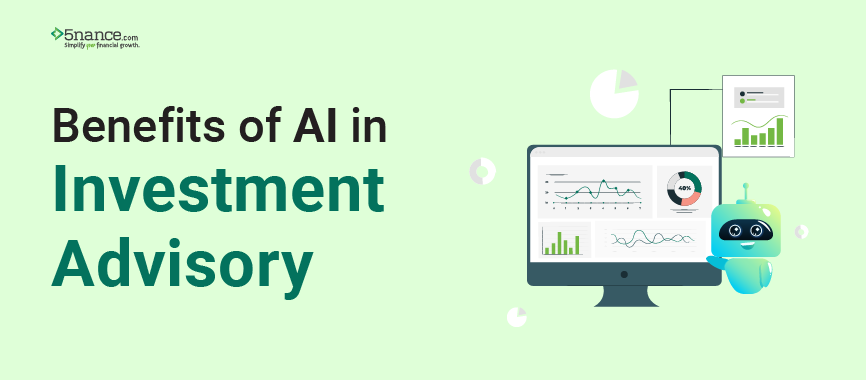
Today's financial landscape has turned fast-paced, and AI is reshaping the ways Investment Advisory Services are delivered. Artificial Intelligence (AI) is emerging and one of the most powerful tools that are bringing automation, data analytics, and predictive capabilities to the investment advisory world.
In this blog we will explore the numerous benefits that AI offers in the realm of AI portfolio management, enabling better decision-making, improved efficiency, and enhanced outcomes for investors.
Enhanced Data Analysis:
AI-powered investment advisory platforms have the ability to process vast amounts of financial data quickly and with immense accuracy.
Machine learning Algorithms if leveraged properly, can identify patterns, trends, and co-relations which may not be an easy task for Human Advisors.
This enables more informed investment decisions based on comprehensive data analysis, leading to potentially higher returns, reduced risk, and no human bias.
Improved Portfolio Management:
One of the key benefits of AI in asset management is its ability to Optimize Portfolio Management. AI algorithms can analyze multiple investment factors, such as Asset Allocation, Risk Tolerance, and Market Conditions, to create Personalized Investment Strategies per the client's preference.
These algorithms continuously monitor and adjust portfolios based on real-time data, ensuring optimal performance and alignment with the investor's goals.
Efficient Risk Assessment:
AI technology can assess risks more efficiently and accurately than traditional methods. By analyzing historical market data, macroeconomic indicators, and news sentiment, AI-powered systems can identify potential risks and provide timely alerts to investors.
This enables proactive Risk Management and the ability to make informed adjustments to investment portfolios in response to changing market conditions.
Automation and Cost Reduction:
AI automation streamlines many manual processes in investment advisory, reducing the time and effort required for administrative tasks. This allows investment advisors to focus more on strategic decision-making and client interactions.
Moreover, by leveraging AI solutions, investment advisory firms can reduce operational costs and provide more affordable services to a broader range of investors.
Behavioral Insights:
AI can also provide valuable behavioral insights by analyzing investor behavior and preferences. By understanding individual investors' risk profiles, investment biases, and long-term goals, AI systems can offer personalized recommendations that align with their unique needs.
This improves client satisfaction, fosters long-term relationships, and promotes better financial outcomes.
Conclusion:
The integration of AI in investment advisory has brought numerous benefits to investors and financial professionals alike. From enhanced data analysis and improved portfolio management to efficient risk assessment and automation,
AI empowers wealth advisors to make better-informed decisions, reduce costs, and deliver more personalized services.
By embracing AI technology, investors can gain a competitive edge in the market and achieve their financial goals with greater efficiency and accuracy.




